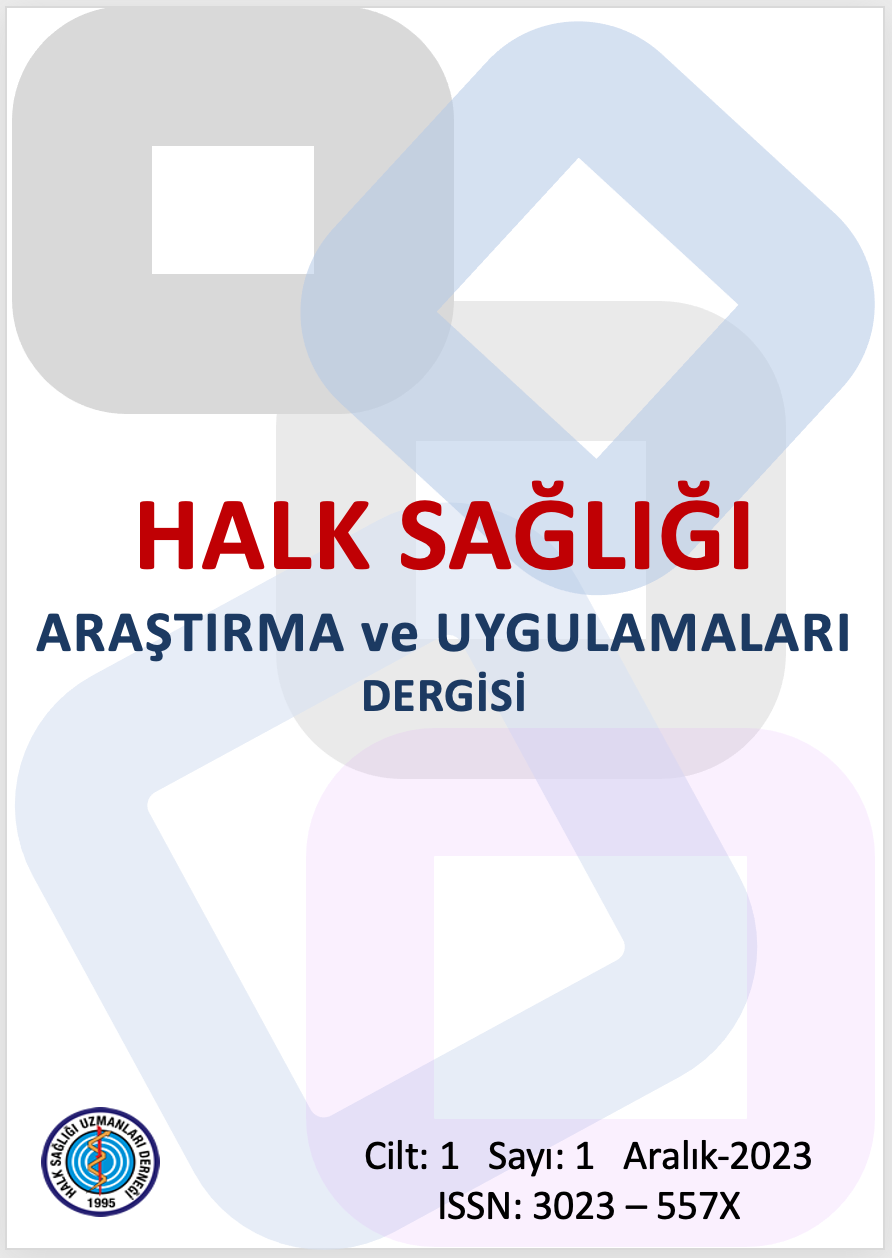Reflections of digitalization on healthcare: Health 4.0
DOI:
https://doi.org/10.5281/zenodo.10433371Keywords:
Health 4.0, Health 4.0-Industry 4.0, Health 4.0-Society 5.0, Artificial Intelligence in Healthcare, Artificial Intelligence and Ethic, Artificialt Intelligence in DisastersAbstract
Health 4.0 emerged with the digital transformation in industry 4.0 to facilitate patients' access to healthcare services, increase the efficiency of healthcare services, and improve the treatment processes of patients. The study aims to address the reflections of Health 4.0 on the healthcare sector and the advantages and disadvantages of digitalization in healthcare services. While trying to increase efficiency with the innovative technologies used, new professions in healthcare have come to the agenda. Artificial intelligence applications provide convenience in many areas, such as preventive healthcare, health improvement, curative healthcare, and epidemic diseases. However, they can also cause disadvantages, such as using it for malicious purposes and deficiencies in legal regulations. Health 4.0 aims to improve the quality of life at the community level through digital transformation. In addition, various artificial intelligence decision support systems are used to quickly determine the location and intensity of damage and provide support after natural disasters that can cause loss of life and property.
References
Akalin B, Veranyurt Ü. Sağlık 4.0 ve Sağlıkta Yapay Zekâ. Vol. 4, Sağlık Profesyonelleri Araştırma Dergisi / Journal of Health Professionals Research. 2022.
Uysal B, Ulusinan E. Güncel Dijital Sağlık Uygulamalarının İncelenmesi. 2020 [cited 2023 Sep 2]; Available from: http://acikkaynak.bilecik.edu.tr/xmlui/handle/11552/2214
Büyükgöze S, Dereli E. Dijital Sağlık Uygulamalarında Yapay Zekâ. 2020.
Yalman F, Filiz M. 4.0 Applications in Healthcare Services and Its Reflections to Health Management. Vol. 32. 2022.
Chen C, Loh EW, Kuo KN, Tam KW. The Times they Are a-Changin’ – Healthcare 4.0 Is Coming! J Med Syst. 2020 Feb 1;44(2).
Aceto G, Persico V, Pescapé A. Industry 4.0 and Health: Internet of Things, Big Data, and Cloud Computing for Healthcare 4.0. Vol. 18, Journal of Industrial Information Integration. Elsevier B.V.; 2020.
Güvercin CH. Artificial Intelligence in Medicine and Ethics [Internet]. 2020. Available from: https://www.researchgate.net/publication/348281076
Wu F, Wu T, Yuce MR. An internet-of-things (IoT) network system for connected safety and health monitoring applications. Sensors (Switzerland). 2019 Jan 1;19(1).
Büyükgöze S. Sağlık 4.0’da Giyilebilir Teknolojilerden Sensör Yamalar Üzerine Bir İnceleme. European Journal of Science and Technology. 2019 Dec 31;1239–47.
Jayaraman PP, Forkan ARM, Morshed A, Haghighi PD, Kang Y Bin. Healthcare 4.0: A review of frontiers in digital health. Vol. 10, Wiley Interdisciplinary Reviews: Data Mining and Knowledge Discovery. Wiley-Blackwell; 2020.
Demirci Ş. Sağlığın Dijitalleşmesi. Mehmet Akif Ersoy Üniversitesi Sosyal Bilimler Enstitüsü Dergisi. 2018 Dec 30;10(26):710–21.
Kılıç T. e-Sağlık, İyi Uygulama Örneği; Hollanda. Gümüşhane Üniversitesi Sağlık Bilimleri Dergisi [Internet]. 2017;203–17. Available from: https://www.researchgate.net/publication/328215872
Güzel Ş, Akman Dömbekci H, Eren F. The Use of Artificial Intelligence in the Health Institutions: A Qualitative Research. 2022;
Akalın B, Veranyurt Ü. Sağlık Hizmetleri ve Yönetiminde Yapay Zekâ. 2021; Available from: https://doi.org/10.26650/acin.850857
Güngördü H, Hoşgör H. Sağlık Hizmetlerinde Yapay Zekâ Teknolojileri ve Bu Teknolojilerin Kullanımına Dair Genel Bir Değerlendirme. 2023.
Sağıroğlu E, Tosun H. The Use of Artificial Intelligence in Health Applications and its Ethical Discussion: Traditional Compilation. Turkiye Klinikleri Journal of Medical Ethics-Law and History. 2023;31(2):140–8.
Bohr A, Memarzadeh K. The rise of artificial intelligence in healthcare applications. In: Artificial Intelligence in Healthcare. Elsevier; 2020. p. 25–60.
Krishnamoorthy S, Dua A, Gupta S. Role of emerging technologies in future IoT-driven Healthcare 4.0 technologies: a survey, current challenges and future directions. J Ambient Intell Humaniz Comput. 2023 Jan 1;14(1):361–407.
Büyükgöze S, Dereli E, Özet SB. Toplum 5.0 ve Dijital Sağlık Society 5.0 And Digital Health. 2020.
TÜİK [Internet]. 2022 [cited 2023 Sep 2]. Available from: https://data.tuik.gov.tr/Bulten/Index?p=%C4%B0statistiklerle-Ya%C5%9Fl%C4%B1lar-2022-49667&dil=1
Yang G, Pang Z, Jamal Deen M, Dong M, Zhang YT, Lovell N, et al. Homecare Robotic Systems for Healthcare 4.0: Visions and Enabling Technologies. IEEE J Biomed Health Inform. 2020 Sep 1;24(9):2535–49.
Baloğlu A, Kaplancalı UT, Kılıç S. Bakıma İhtiyaç Duyan Yaşlılar İçin Yardımcı Sosyal Robot Araştırması ve Analizi. European Journal of Science and Technology Special Issue [Internet]. 2019;1–8. Available from: http://dergipark.gov.tr/ejosat
Kachouie R, Sedighadeli S, Khosla R, Chu MT. Socially Assistive Robots in Elderly Care: A Mixed-Method Systematic Literature Review. Int J Hum Comput Interact. 2014;30(5):369–93.
Çalışır Kundakçı Ş. Yaşlı Bakımında Yapay Zekâ Kullanımı. Doğu Karadeniz Sağlık Bilimleri Dergisi [Internet]. 2023 Jul 31;2(2):77–87. Available from: http://dergipark.org.tr/tr/doi/10.59312/ebshealth.1318150
Öztürk Dilek G. Yapay Zekânın Etik Gerçekliği. 2019.
Turan T, Turan G, Küçüksille E. Yapay Zekâ Etiği: Toplum Üzerine Etkisi. Mehmet Akif Ersoy Üniversitesi Fen Bilimleri Enstitüsü Dergisi. 2022 Dec 1;13(2):292–9.
Stone P. Artificial Intelligence and life in 2030. Report Of The 2015 Study Panel. 2016;
Murphy K, Di Ruggiero E, Upshur R, Willison DJ, Malhotra N, Cai JC, et al. Artificial intelligence for good health: a scoping review of the ethics literature. BMC Med Ethics. 2021 Dec 1;22(1).
Stahl BC, Andreou A, Brey P, Hatzakis T, Kirichenko A, Macnish K, et al. Artificial intelligence for human flourishing – Beyond principles for machine learning. Journal of Business Research, 2021 , 124;374–388.
Delphi Study. Shaping the ethical dimensions of smart information systems– a European perspective (SHERPA). 2020.
Önder G, Önder E, Özdemir M. Gelişmekte Olan Teknolojiler Sonucu Sağlıkta Oluşacak Yeni Meslekler [Internet]. 2019. Available from: https://orcid.org/0000-
İyigüngör T. Ekonomik ve Toplumsal Dijitalleşme: Endüstri 4.0’dan Toplum 5.0’a. Smac Journal. 2022;
Coşkun AM. Afet Yönetimi ve Karar Destek Sistemi (AYDES) Üzerine Bir Çalışma [Internet]. 2021. Available from: https://orcid.org/0000-0001-6824-9978
Partigöç NS. Afet Risk Yönetiminde Yapay Zekâ Kullanımının Rolü. Bilişim Teknolojileri Dergisi. 2022 Oct 31;15(4):401–11.
Keski̇n E, Bozdoğan B. 2007 ve 2018 Deprem Yönetmeliklerinin Kırklareli İli Özelinde Değerlendirilmesi. Vol. 4, Araştırma Keskin&Bozdoğan/Kırklareli University Journal of Engineering and Science. 2018.
Padmanabhan N, Burstein F, Churilov L, Wassertheil J, Hornblower B, Parker N. A Mobile Emergency Triage Decision Support System Evaluation. 2006.
Demirbilek Ö. Büyük Kahramanmaraş Depremi Sonrası Afet Yönetimi Sürecinin Değerlendirilmesi ve Gelecek İçin Çözüm Önerileri. 2023.
Downloads
Published
How to Cite
Issue
Section
License
Copyright (c) 2023 HALK SAĞLIĞI ARAŞTIRMA VE UYGULAMALARI DERGİSİ

This work is licensed under a Creative Commons Attribution-NonCommercial 4.0 International License.


